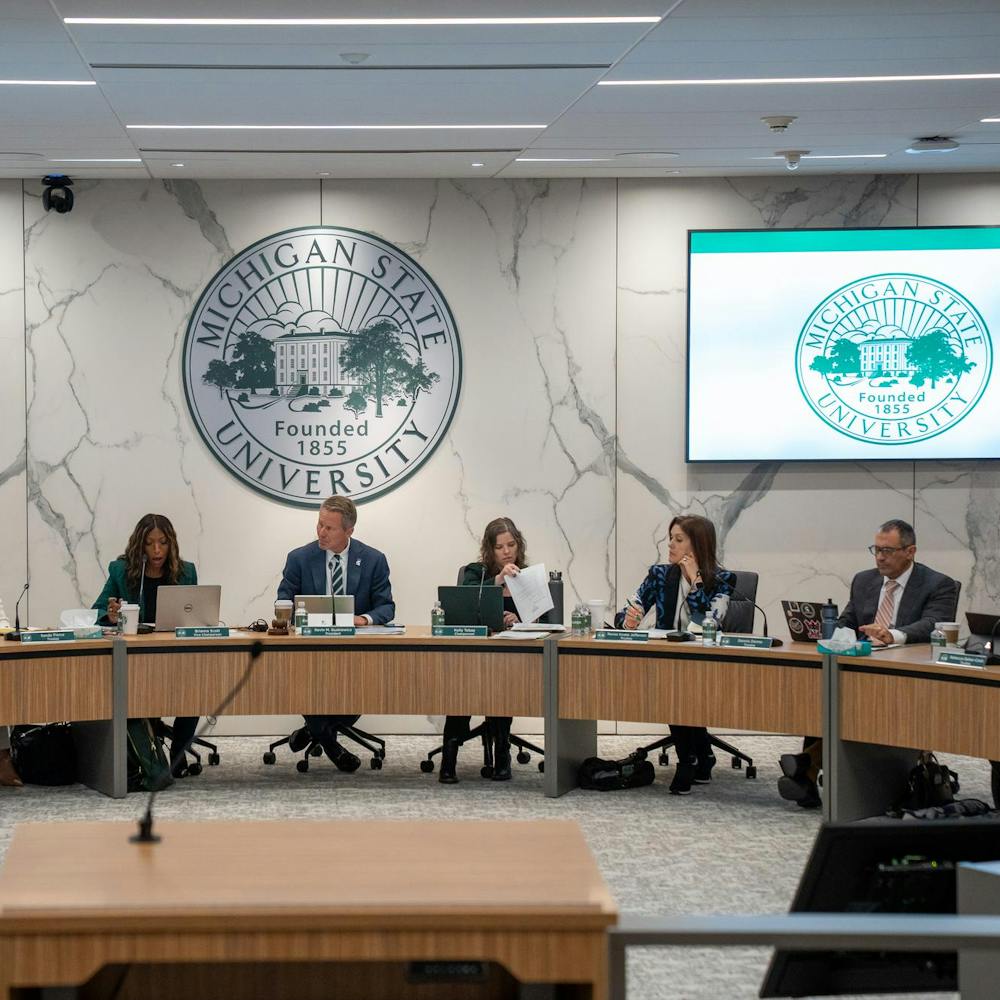Students concerned with receiving a minor in possession charge, or MIP, when calling for medical help should rest assured knowing the East Lansing Police Department is well-versed in the new medical amnesty law, officials said.
ELPD Sgt. Steve Gonzalez and Lt. Larry Sparkes discussed and answered questions on how officers are implementing the new law at ASMSU’s General Assembly meeting Thursday night.
ASMSU is MSU’s undergraduate student government.
Medical amnesty, which took effect June 1, allows minors to avoid an MIP when they call for medical assistance. ASMSU was heavily involved in the passing of the bill.
“If someone needs help, pick that phone up and call,” Gonzalez said. “It protects any friends or anyone that (is) trying to get help.”
Gonzales said the law protects intoxicated minors in three basic ways.
First, if a minor voluntarily brings themselves to a medical facility, they cannot receive an MIP.
Second, if a minor needs help for nonalcohol-related reasons while intoxicated, they cannot receive an MIP. Gonzalez said this should waive fears individuals have about calling about issues such as sexual assault while intoxicated.
Third, intoxicated minors cannot receive an MIP for calling 9-1-1 or an ambulance for help regarding their intoxication.
Gonzalez said students should realize this law only covers MIPs and will not protect individuals from charges for violating open container laws or driving under the influence, even to get a friend to the hospital.
He also said the law is not entirely clear on what would happen to third-party intoxicated minors who are not calling for an ambulance or in need of it themselves. He said he feels there is a strong possibility the issue will enter the court system in the next few years.
“Medical amnesty was an informal policy with the East Lansing Police Department prior to the law,” ASMSU President Evan Martinak said. “The police department is in no way interested in giving (citations) to those trying to get help … I think medical amnesty just bolsters that.”
Gonzalez said he has seen officers hand citations to minors in ambulances, which he found “ridiculous.”
He said since the implementation of the law, he has not seen any increase in “incapacitated calls.”
Martinak said ELPD’s approach to the law “can only really improve student-police relations in the city.”
City Manager George Lahanas also attended the meeting, taking an opportunity to discuss student opportunities to get involved in local government.
He said government has taken the wrong turn, now focusing on a businesslike relationship where citizens are treated like customers and robbed of their ability to participate in government. He said he hopes to change this.
“It’s your city government,” Lahanas said. “If you want to get involved, there’s lots of ways to get involved, and we’d love to see you.”
Lahanas also showed a video highlighting the purpose and benefits of the local neighborhood associations and discussed the upcoming live streaming of city council meetings.
Support student media!
Please consider donating to The State News and help fund the future of journalism.
Discussion
Share and discuss “Local police discuss medical amnesty law” on social media.






